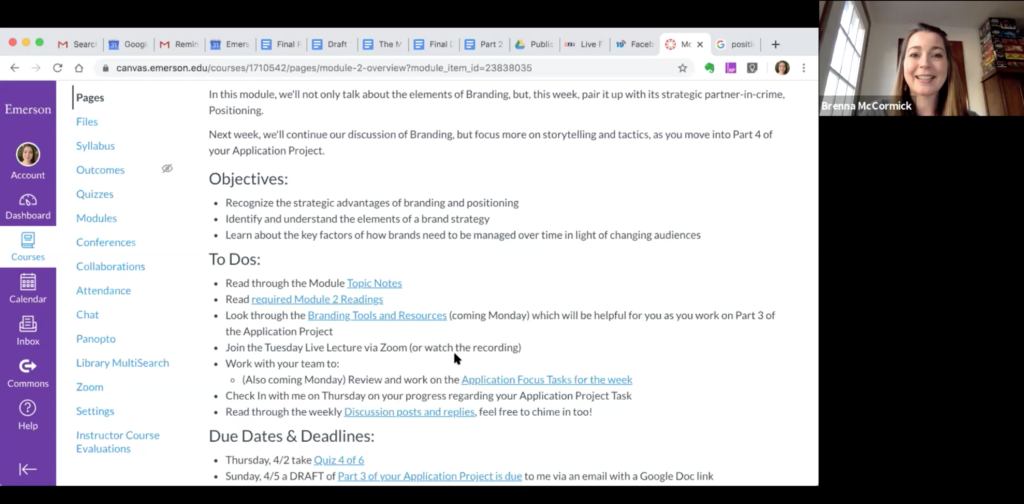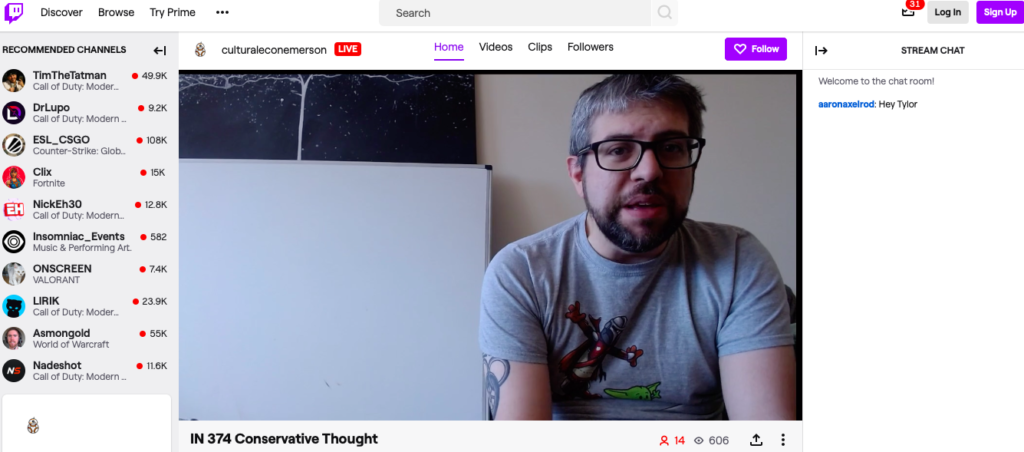Pivot! Business of Creative Enterprises Program Adapts to Online Learning

As founder of the Brooklyn Hip Hop Festival, Wes Jackson, director of Emerson’s Business of Creative Enterprises (BCE) program, has had to plan for hurricanes, intense heat, floods, and other acts of god. But a pandemic? No, that’s a new one.
Yet today, COVID-19 is a central component of Jackson’ classroom discussions.
“It’s almost all I’m talking about in classes,” said Jackson. “We’re taking the quarantine and integrating it into learning.”
Faculty members across all departments had no choice but to quickly pivot their classes to online learning. This necessity, though, gels with a main tenet of BCE: The program is designed to help students redefine existing business strategies.
Similarly to how businesses were forced to reevaluate their security plans after the Boston Marathon bombing, they’re now having to look at how to adapt to an economy on lockdown. Classroom discussions have examined industries like Broadway, airlines, and online businesses such as TikTok, Spotify, and Amazon, and how they’re surviving during this pandemic.
Jackson said the pandemic is exposing businesses that don’t have adequate cash reserves or don’t value employees, and leaders who don’t know how to deal with a crisis.
“Coachella — You didn’t have the rights to stream your festivals? Are you not aware of streaming as a source of revenue?” said Jackson. “I think it’s a great opportunity for new executives-in-training that you better be pandemic-proof, and our students are learning it at 21 year olds.”
The students are learning that businesses need to be ready to deal with unforeseen events — for instance, having their partners move back to California, Venezuela, and elsewhere. That could mean different time zones, Internet connection issues, working with parents and siblings nearby, and other issues that don’t exist in a live classroom setting.

“There is more problem solving, thinking things through, and logistical coordination,” said Brenna McCormick, senior executive-in-resident for BCE. McCormick said she’s been helped by taking an online course training for faculty this semester as she looks to bring Introduction to the Creative Economy online for the summer session.
McCormick co-teaches Creative Collaboration with John Rodzvilla, senior electronic publisher and graduate program director for Publishing and Writing. The students are now in the publishing unit and are working on creating and pitching products, services, or apps, while using the Agile project management method.
“John and I talked with the students about addressing the challenges of the current environment when thinking through the idea and being able to ‘pivot’ when faced with challenges,” said McCormick.
For faculty, who had just a week to figure out how to reconfigure their class to work online, it’s required a divergence from their typical teaching style. They’ve also had to account for at least two classes they lost while students moved off campus.
“I think it’s difficult to realize until you go through a situation like this how much of your classroom preparation doesn’t work outside of the traditional classroom setting,” said Tylor Orme, assistant professor of cultural economics in the Institute for Liberal Arts and Interdisciplinary Studies.
Orme said that while he often asks for student participation or questions, most of his typical classes are lectures, drawing diagrams on a whiteboard. Unlike most faculty, who are using the now ubiquitous Zoom video conferencing program, Orme opted for Twitch. His lectures are also available anytime online through a Twitch channel.
“I … think that there is a comfort level there [using Twitch],” Orme said. “Most of my students had never heard of Zoom two months ago, much less had experience with muting their microphones or sharing their screens. Twitch is something that many of my students were already using to watch video games, and is relatively low effort to use if you’re a viewer rather than a streamer.”
Orme added that using Twitch has also provided some much needed levity.
“Being able to make a joke about video games being on the same website, or having some of my students sign off on the Twitch chat with “gg” (“good game” is a common way to say goodbye when someone is gaming) can help lift spirits, and I think that matters right now,” said Orme.
Categories